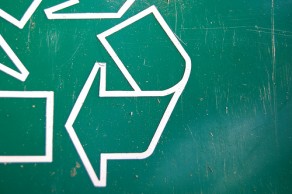
BU should not be ashamed to take home its report card – it earned a B on the College Sustainability Report Card, an improvement from the pathetic D it received in 2007.
The university aced some categories such as food and recycling, transportation and student involvement, but nearly flunked others like climate change and energy and shareholder engagement.
(Check out the website for the full breakdown)
The report card was released on October 7 on an interactive website, GreenReportCard.org. The website allows users to browse sustainability profiles of 332 US and Canadian colleges, with individual grades in categories like green buildings and transportation and an overall grade for each school.
Information for the report was gathered from four surveys sent to the schools. Grades were determined by the level of green activity in each category, according to the Green Report Card website.
In the last two years, the dining halls at BU purchased food from 45 local farms, recycled 450,000 pounds of plastic bottles, cans and paper per year and went trayless according to the Dining Services website. The administration instituted a controversial policy which limits students’ print quota from 500 double-sided sheets to 100 per semester. BU Sustainability Day was also held this past Wednesday at the George Sherman Union, showing the collaborative work of environmental student groups.
However, BU needs to step up its efforts to reduce greenhouse gas emissions and increase renewable energy sources. Currently, the school does not generate any renewable electricity, and is still working on completing the Greenhouse Gas Emissions Inventory, according to the Campus Survey on the Green Report Card Website.
If BU can learn from successful sustainability efforts of other colleges, this national report can serve as a powerful tool. Here are some resourceful ventures other colleges and universities have done:
- College of the Atlantic (Bar Harbor, ME ) – Bottled water is not sold on campus and 100% of the school’s electricity comes from hydropower
- Middlebury College (Middlebury, VT) – Two building on campus are powered partly by “cow power”- farm manure digestion electricity
- Harvard University (Cambridge, MA) – There is a Green Campus Loan Fund which offers low interest loans to facilities departments for conservation projects
- Arizona State University-Tempe (Tempe, AZ)– There are 137 campus electric vehicles , 170 that are powered by biodiesel and a bike-sharing program
So what more do you think needs to be done? What have been the most successful changes so far?
